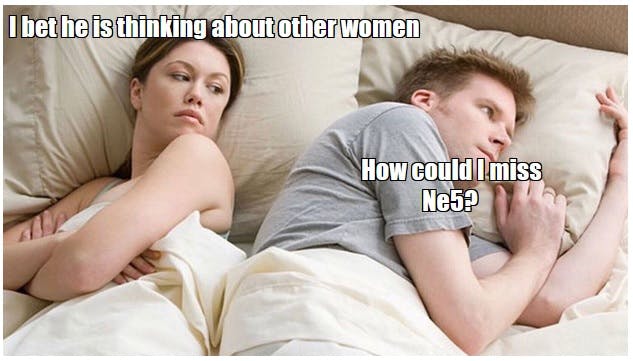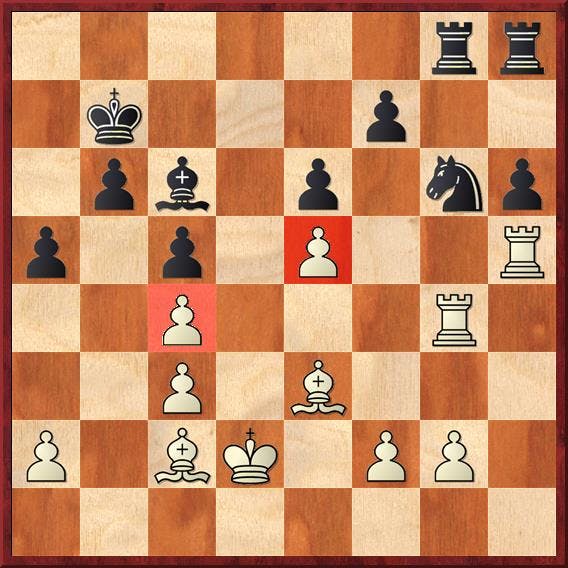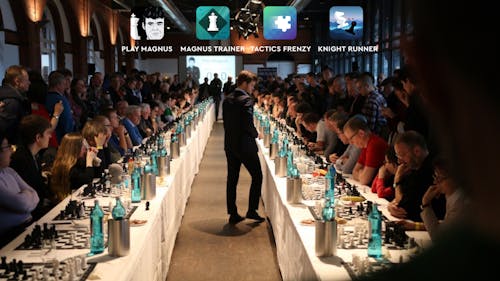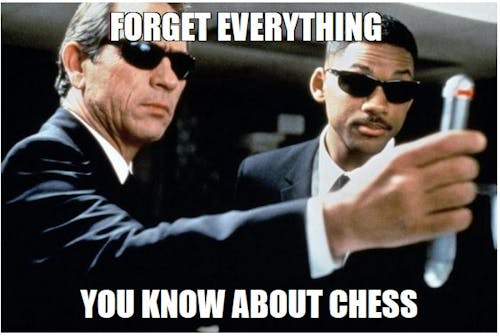Are you sure you want to delete your account?
(This will permanently delete all of your data - purchases, game scores, ratings, etc)
Change your username
Your current username is: guest
Change your account email address
Your current account email is:
Redeem your Fampay code here!
Use your Fampay code to get access to the Play Magnus Plus Membership!

Why Do We Miss Good Moves? – Part I
In a nutshell, chess is about making good moves. However, when it comes to finding them, it is easier said than done. Unsurprisingly, many chess players don’t reflect on why they have missed out on a certain promising opportunity and blame it on “bad luck.”
In this blog post, we will analyze a few popular reasons why people oversee great chess moves that could have potentially changed the course of the game. Also, importantly, we will discuss what to do to minimize the chances of this happening to you.
Not being sharp enough tactically
Generally speaking, we tend to miss good moves that seem unconventional to us. For example, if a novice has just been taught the value of each chess piece, he is unlikely even to consider a move that gives up a queen for a knight. A more experienced player may realize that this move is in fact a winning sacrifice that leads to mate.
“Positional” players should solve more studies and tactical problems, analyze the games of the best attacking players, and pay more attention to the forcing moves in each position instead of positional factors. Also, having a more versatile style helps a lot, even though becoming a more universal player typically requires much work. GM Nigel Short used to say that pawn weaknesses don’t matter much if the game ends in a checkmate. However, I still know quite a few strategy-oriented players who won’t even consider making an “ugly” yet efficient move if it doesn’t look right from the positional point of view. Knowing the rules of thumb is very important, but a master should be able to work out the exceptions too.
Wrong evaluation of the position and/or failing to reevaluate it correctly

In the Carlsen-Anand World Chess Championship match in 2014, Game 6 was quite critical. In the diagram position, Magnus has just played 26.Kd2??, to which Vishy quickly replied 26…a4?? instead of the pretty obvious move 26…Nxe5, collecting the e-pawn for free and putting further pressure on the c-pawn. Anand lost that game and later the entire match, while the intermediate capture 26…Nxe5 would have given him excellent winning chances in at least that particular encounter and could have been a strong psychological blow as well.
Please check out the Magnus Trainer app if you are interested in a recap of Magnus Carlsen’s World Chess Championship matches, including an analysis of the endgame mentioned above.
Many amateur kibitzers enjoy making fun of the world’s greats and nurturing their self-esteem by saying that they would have found the right move in a second if they had such an opportunity. By saying so, they ignore the over-the-board psychology. At that point, the position was relatively quiet. Magnus had an edge and felt like he could play for two results: a win or a draw. Vishy was psychologically in the mindset of trying to hold and prevent the active play of his opponent. After a natural move such as Kd2, it is quite natural for Black to keep believing that you are worse and not even try to readjust and search for a way to win. This is a very important phenomenon in general. Many games are lost due to misjudging the position. For example, let’s say you are considerably better (or at least you believe so). Then you make a few moves that you like while the opponent replies somewhat awkwardly. Such a development of events might make you lead you into thinking that you must be winning (“I had a good position and was doing sensible things, while he came up with some rubbish moves”). However, often your initial assessment might turn out to be wrong, or you might have made some poor moves and not noticed it, thus ending in an equal or worse position. The stronger the player is, the better he can evaluate each position and quickly readjust if he feels like the last move has changed the assessment.
Needless to say, both Magnus and Vishy would have found 26..Ne5 in the blink of an eye if you had shown them a diagram with the position and asked to propose the best move for Black. However, in the psychological context of the over-the-board play they have both missed it.
Chess illiteracy and being a slave of chess stereotypes
Masters know many standard positions and typical plans and reactions. This is usually acquired by going over other players’ games and through personal experience, as well as profoundly analyzing the positions of interest. A newbie will often spend a lot of time on a move and still fail to find the right idea just due to not having seen such a situation before. As compared to pros, amateurs spend tremendous amounts of time and mental energy on reinventing the wheel, not to mention that sometimes they fail to make such an important discovery.
The other side of the coin is religiously following the plans you have seen earlier; adhering to stereotypes about certain positions prevalent among players of your skill level. For example, if you ask one of the chess students why he believes that f5 should be played for Black in a position, he might reply that it is a standard breakthrough in such structures aimed at starting an attack on the kingside. However, it may well turn out that either the break is inappropriate in this specific case, or there is a much better “non-standard” move. Once again, please don’t fall under the illusion that chess is just a set of guidelines that can be followed automatically to reach success. The game is more sophisticated than that.
These three reasons are quite popular and make up for a large percentage of all the mistakes associated with not finding the optimal move. However, there are many more of them to come. Stay tuned for the next blog post in our series!

